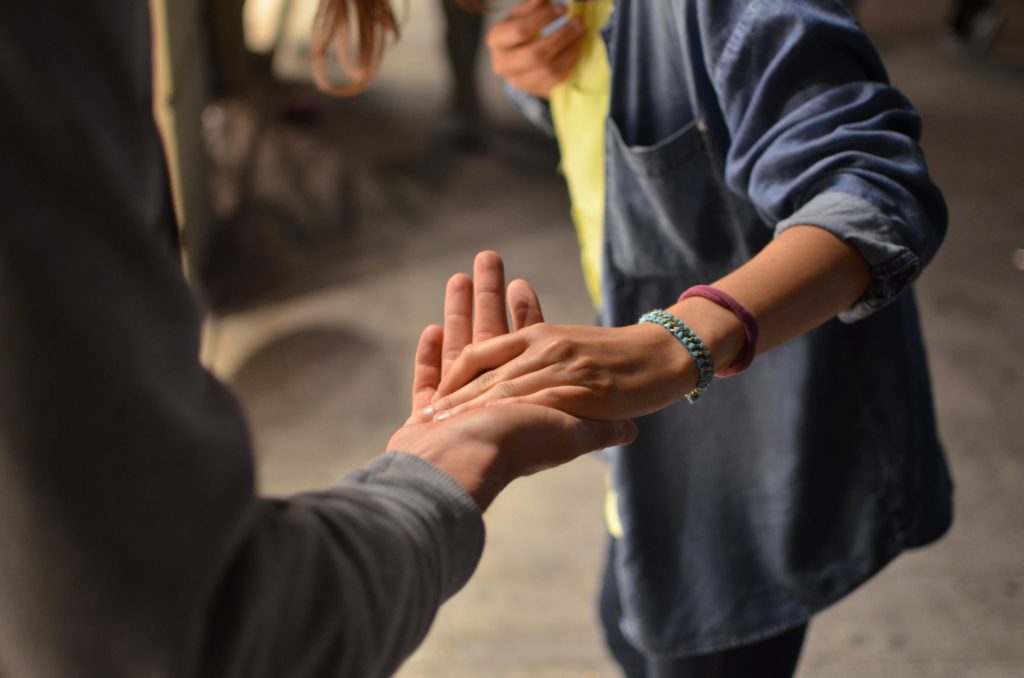The Role that Sponsors Play in 12-Step Programs

A 12-step program offers vital tools to help people begin the journey of recovery. People with substance use disorders have relied on these programs since the 1930s, and their staying power is a testament to their effectiveness. 12-step programs like Alcoholics Anonymous are effective for several reasons, one of which is the use of sponsors.
People mentor others in all aspects of life. Our parents, teachers, coaches and bosses all help us find paths forward. When it comes to addiction, few people have a frame of reference as valuable as someone who has struggled with substance misuse. As much as families love us and as much as friends want to help, they only know so much about the experiences of someone fighting addiction.
Mentors and sponsors in 12-step programs provide valuable insight to someone going through the steps. Before we look at their role in recovery, let’s talk about who they are…
What is a Sponsor in a 12-Step Program?
A sponsor has typically been a member of the sober community for several years before mentoring a sponsee. The specific responsibilities of a sponsor aren’t clearly defined, partly because every relationship between a sponsor and sponsee is unique. Objectives and expectations vary from one relationship to another. In some cases, one sponsor might have a very different relationship with two people they mentor.
Studies find that the sponsors are as important as meetings, if not more so. Meetings provide great value to people in 12-step programs, but sponsors offer a deeper connection that helps a sponsee outside of these meetings.
Sponsors Guide Others Through the 12 Steps
Though no two sponsors will have the same dynamic with their sponsees, one central responsibility remains consistent: to help the sponsee through the 12-step program. This responsibility includes talking to the sponsee about what is required in each step, teaching them the rules of the program and familiarizing them with the basics of meetings, such as the ideas, language and customs associated with the program.
Sponsors Care About More Than a Sponsee’s Sobriety
As veterans of 12-step programs, sponsors know that recovery is about more than just sobriety. Many sponsors regularly talk to sponsees about other aspects of life. They know that emotional and physical health are key parts of their sponsee’s journey. Sponsors offer both practical and emotional guidance for those they mentor. However, effective sponsors are also typically good at setting some boundaries, so that their sponsee doesn’t become overly dependent on them.
Sponsors Have an Uncanny Ability to Keep Others Honest
People with substance use disorder are skilled in deception. While friends, family and co-workers might not detect a relapse, sponsors are more likely to notice. Because sponsors understand the challenges in recovery, they are also better equipped to see the warning signs of a potential relapse. This quality makes them uniquely positioned to keep a sponsee accountable.
Sponsors in 12 Steps Provide an Example to Follow
Knowing that someone has been through similar challenges and stayed the path is invaluable for someone struggling with substance misuse. In addition to confiding with sponsors and seeking guidance from them, sponsees need only look at their sponsor’s actions for inspiration.
Sponsors Encourage Others to Stay on the Path
Attending meetings and following the steps is an essential part of recovery in a 12-step program. Sponsors help those they mentor by encouraging them to stay the path. If a sponsee is on the fence about attending the next meeting, a brief reminder by the sponsor can make all the difference.
People in the Program Can Trust Their Sponsors
Few people will ever understand what a person with substance use disorder is going through. A sponsee will likely only feel so comfortable sharing the most personal of struggles with loved ones, but they know they can trust their sponsor to understand their personal challenges. People in 12-step programs often develop a level of trust with their sponsors that creates a bond unlike any other in their lives.
Sponsors in 12 Steps Are Also on Their Own Path
Sponsors aren’t perfect, and they are not qualified to speak on every challenge their sponsee faces. They aren’t legal experts, therapists or spiritual advisers. Their concern is keeping a sponsee on the path set by the 12 steps. Sponsors make mistakes, and they often fall short of their own standards. However, the best sponsors stay true to their mission, provide an example for others to follow and never take advantage of those they mentor.
Relationships between sponsors and sponsees can be complex, but it is a relationship central to recovery for those in 12-step programs. If you or someone you care about is beginning the program, do your best to respect the process and the sponsor-sponsee relationship. It is a relationship unlike any other, and it is often key for a successful recovery.
If you are interested in learning more about 12-step programs in Austin, we encourage you to explore the resources available on this website. At Sober Austin, we understand that a 12-step program isn’t the only path to recovery, so we also provide a list of alternatives to 12-step programs.

